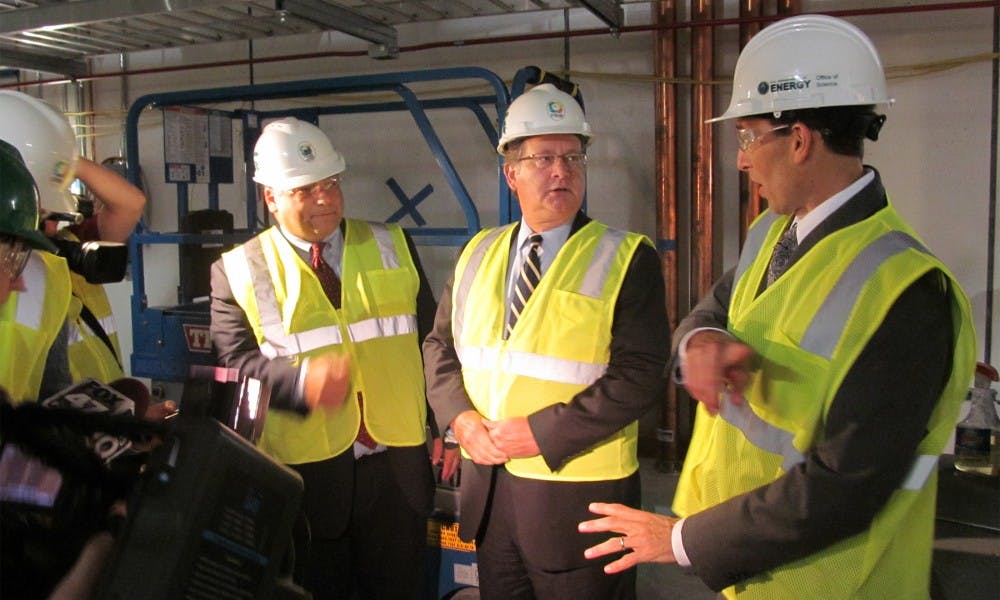The Facility for Rare Isotope Beams, or FRIB, is currently under construction on campus and will compliment an already juggernaut physics program at MSU.
The graduate nuclear physics program at MSU is ranked first in the nation by U.S. News and World Report and is being recognized by more than those in the scientific community.
U.S. Sen. Gary Peters toured the construction site of the FRIB this week as a part of his campaign to ensure that Congress continues to fund long term scientific research.
So far, the $730 million project is being completely funded by The Department of Energy Office of Science, MSU and the State of Michigan.
Peters is the ranking member of the Senate subcommittee on Space, Science, and Competitiveness and said he sees MSU’s FRIB as pivotal for long term research.
The facility is estimated to be completed in 2022, but could have an early completion in 2020.
Paul Mantica, Deputy Laboratory Director at FRIB said the site will “study the properties of the nucleus” as well as be a “world leading facility for the production of rare isotopes.”
During Peters’ tour this week, Chris Thronson, Deputy Director of Conventional Facilities, explained how the facility works in layman’s terms.
The site will be 35 feet below ground and will showcase miles of complex wiring and piping for the experiments, he said.
Thronson explained that a linear accelerator launches particles at a wall, which then explode, and MSU scientists study the remnants of those particle explosions for rare isotopes.
These rare isotopes, Carbon-12 being a common one, only last for a few minutes, Thronson said, so scientists must record quickly.
The results those experiments will go into long term studies that will be applicable to a number of fields from medical equipment to the stars in deep space.
“Nuclear physics and astronomy are inextricably intertwined. In fact, more than ever, astronomical discoveries are driving the frontiers of nuclear physics while our knowledge of nuclei is driving progress in understanding the universe,” according to the FRIB website.
Studies that will be completed at FRIB are catalysts for practical, societal benefits as well.
The rare isotopes studied will be “used to develop new medical diagnostics and treatment of disease.”
Rare isotopes can help in the understanding of the biochemistry associated with cancer and in turn lead to new diagnostic tools.
Understanding rare isotopes is also vital to ensuring the safety of a “new generation” of nuclear reactors, ones spearheaded by research on MSU’s campus.
During a roundtable discussion with Peters, university officials in the scientific community discussed the vitality publicly funded research brings to society.
Stephen Hsu, the Vice President for research and graduate studies at MSU, held up his cell phone as an example and stated that many of the data configurations and algorithms in machines like smart phones were first developed in university studies and then commercially brought to the public.
University studies such as the ones that will eventually occur at the FRIB.







